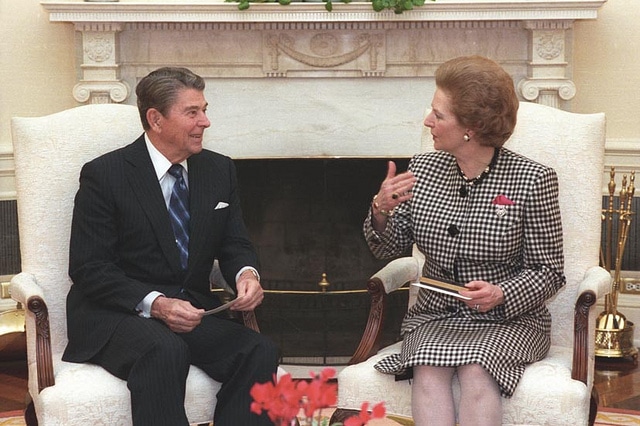Thatcher had been in awe of her fellow free market apostle Reagan, but the two world leaders would diverge on the issue of the environment.
By 1988, the American president had served the maximum two terms in office. George H. W. Bush, his likely successor would, enthusiastically mount the climate bandwagon, despite being a fellow Republican.
History suggests, however, that leaders in America and Europe, about to face their electorate, remained deeply concerned about the environment. Yet after taking office, these leaders became far more interested in creating jobs and the prosperity of the economy.
Bush Snr, as he is now remembered, was a “former oil wildcatter” who earnt his multi-million fortune in West Texas as the founder of the Bush-Overbey Oil Development Company before becoming director of the Central Intelligence Agency (CIA).
During his election campaign, he stated: “Those who think we’re powerless to do anything about the ‘greenhouse effect’ are forgetting about the ‘White House effect’.”
He added: “In my first year in office, I will convene a global conference on the environment at the White House… We will talk about global warming… And we will act.”
The weather may have played its part in forcing Bush’s hand. America was recovering from yet another hottest summer since records began.
Lack of support
Extreme heat and drought was estimated to have killed up to 10,000 people with wildfires tearing through Yellowstone National Park.
Bush Snr was elected in November 1988 and that same month the Intergovernmental Panel on Climate Change was formed in Geneva.
Bert Bolin was instrumental in arranging the event. The Swedish scientist had used an IPCC style body to ensure international action to prevent the destruction of the ozone layer.
Bolin had warned that regulation would prove necessary to prevent catastrophe. “It is likely that climatic concerns will limit the burning of fossil fuels rather than the size of the natural resources.”
He was fundamentally disappointed by the founding meeting of the IPCC. “Only 28 countries responded…the climate issue was still not high on the political agenda.”
Republican conservation
The IPCC would bring together thousands of scientists who would publish a report, approximately every five years, bringing together the best and most recent studies on the potential impacts of rising global temperatures.
“The climate change issue would ultimately not concern just the scientific community, but there would be a need to reach out to the public, stake-holders, decision-makers and politicians,” Bolin wrote.
“A clear distinction had to be maintained between a basic scientific assessment of the state of knowledge on one hand, and political negotiations to reach agreements on policies and measures on the other.”
Bush Snr appointed James Baker as secretary of state and sent him to the first meeting of Working Group II, held in Washington in January 1989.
After four years as President Bush Snr signed the National Energy Policy Act into law, promoting energy efficiency, alternative fuels and renewable energy although his White House climate conference was never held.
The fact that this staunchly conservative and republican oil millionaire from Texas had embraced climate change raised hopes among the international community that politicians from the entire political spectrum would act to avert what scientists warned could become an unprecedented catastrophe.
Picture: Ukberri via Flickr
Subscribe to our newsletter
Stay up to date with DeSmog news and alerts






